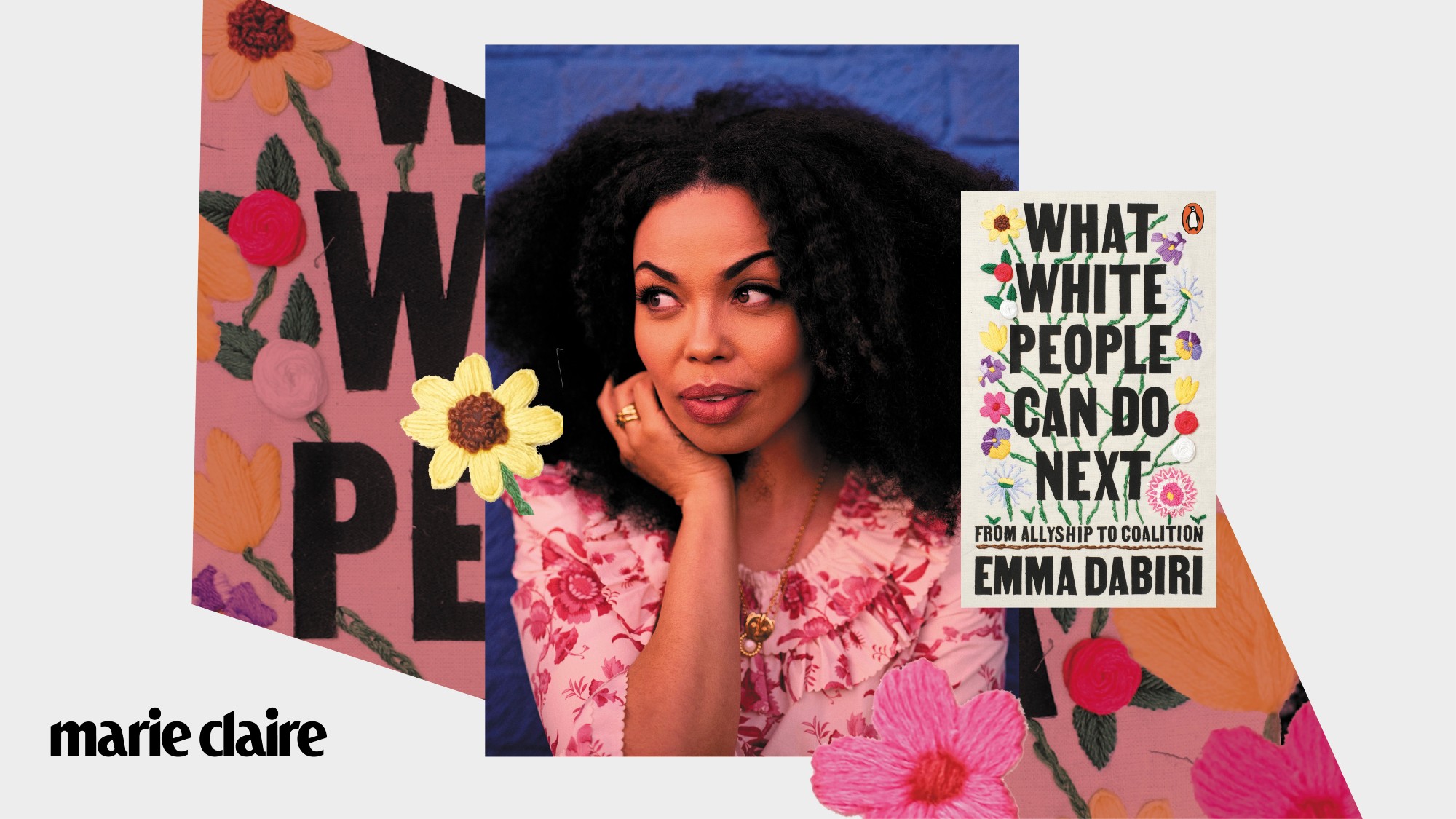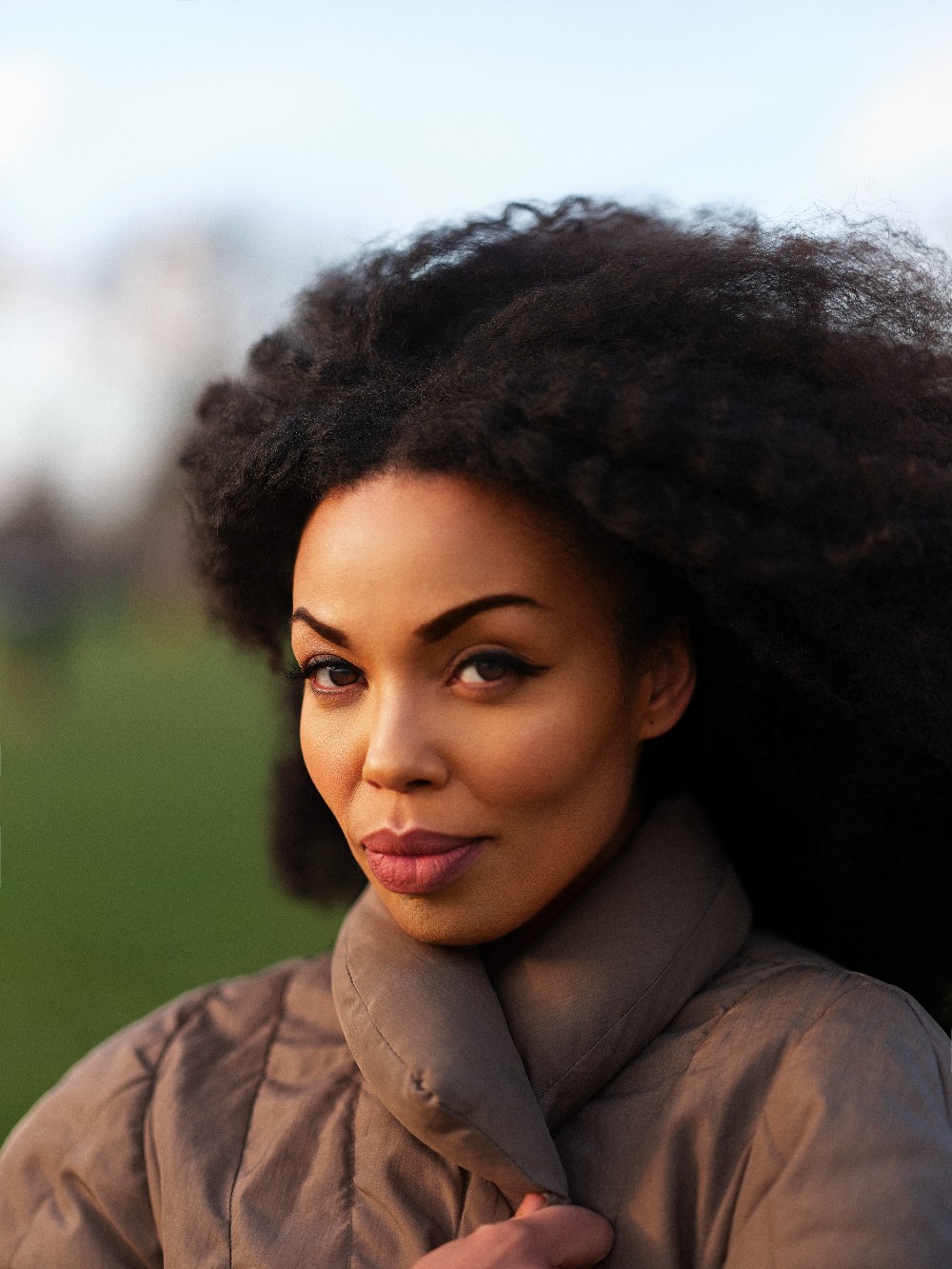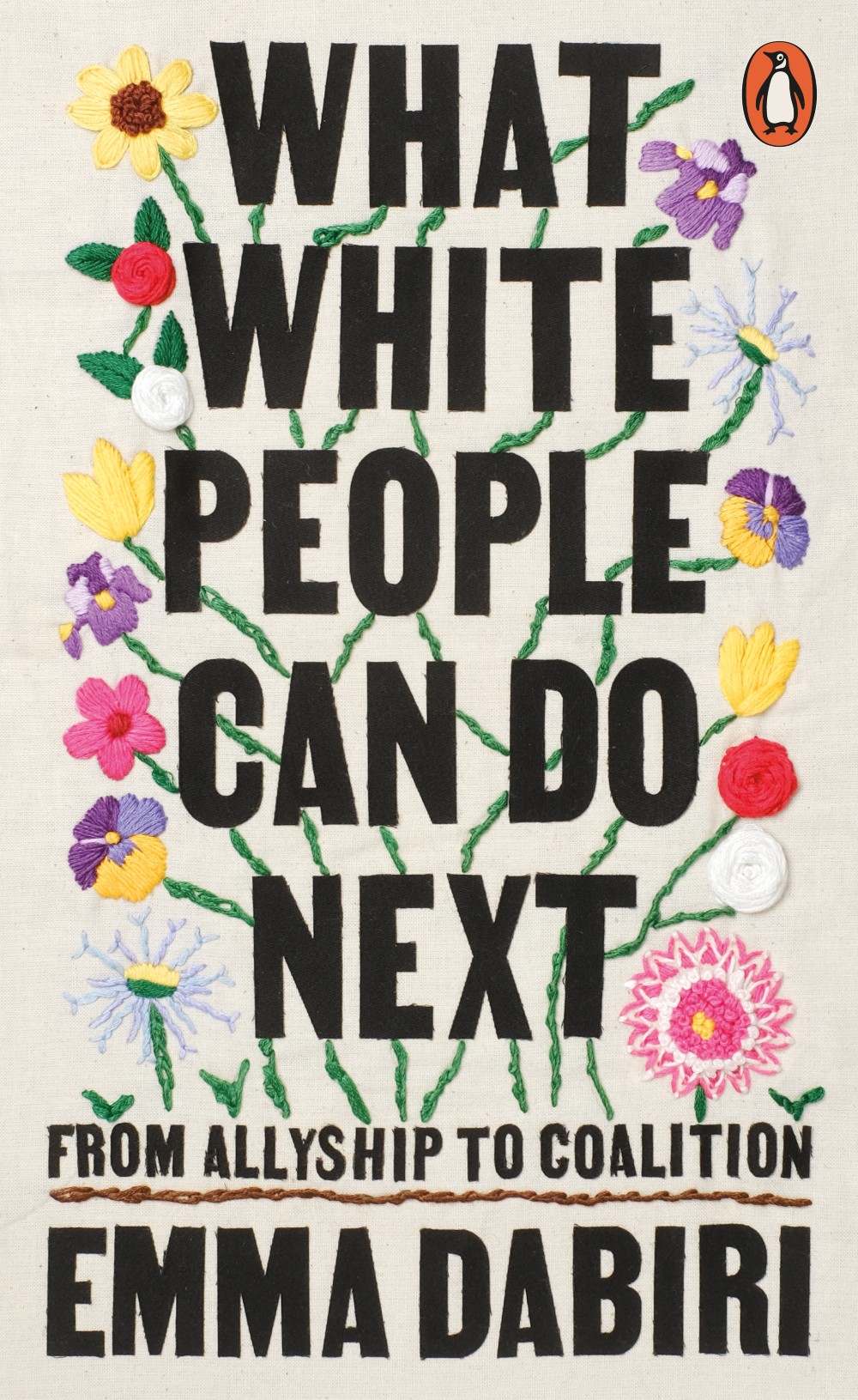“Why allyship has messed up and how to fix it,” argues Emma Dabiri
Academic Emma Dabiri despaired every time she saw ‘allyship’ or ‘amplify your voice’ hashtags, so she wrote What White People Can Do Next - a provocative look at class, capitalism and the construction of race. It's an urgent call for coalition and dismantling racism by learning lessons from the past


Academic Emma Dabiri despaired every time she saw ‘allyship’ or ‘amplify your voice’ hashtags, so she wrote What White People Can Do Next - a provocative look at class, capitalism and the construction of race. It's an urgent call for coalition and dismantling racism by learning lessons from the past
What if everything we’re doing to dismantle racial injustice and inequality, and bring about meaningful change is basically wrong and misguided? Emma Dabiri thinks so - it's why she wrote her manifesto for change, What White People Can Do Next - and she’s desperate for all of us to move on from the ‘well-intentioned, yet mis-informed hashtag activism, allyship and online outrage'.
I’m talking to the Irish-Nigerian academic, author and broadcaster about her recent publication weeks before the first-year anniversary of George Floyd’s murder and several weeks since former police officer, Derek Chauvin, was found guilty of his murder. It’s been a tumultuous year, yet Dabiri is not impressed with anti-racism’s 2021 progress report.
Concerned that activism is not achieving meaningful and lasting change, Dabiri drew upon her personal experience and years of research as a SOAS University of London lecturer, to present a new vision and different way of talking about racial injustice. “Everyone’s life is reduced by racism,” says Dabiri, “and my book is for everyone – not just white people. We all need to work out where we go from here and what do we do next.”
Why you need to read What White People Can Do Next
Dabiri’s eye-opening dive into class, capitalism and race is a call to action. It’s essentially a ‘wake up, world and smell the coffee’ with her sobering conclusion that, ‘race is not the only framework to live by and is a distraction that stops us acting together to face our biggest threat, the ecological crisis and destruction of our planet’.
Her book demands we look for a 'coalition of common goals' and focus on a mass movement that’ll make a just future for all of us. She believes change will only happen if we:
* Stop the denial - race is a myth created to cause division
Celebrity news, beauty, fashion advice, and fascinating features, delivered straight to your inbox!
* Interrogate whiteness - why was ‘white supremacy’ created in the first place
* Interrogate capitalism - anti-racist movements will fail if class and capitalism are ignored
* Denounce the white saviour - ‘allyship’ is today’s on-trend articulation of white saviourism
* Abandon guilt - acknowledge past injustices but guilt and shame shouldn’t paralyse us into inaction
* Pull people up on racism - it’s our collective responsibility to challenge racism if we see or hear it anywhere
* Read, read, read - not just anti-racist guides. Read fiction and theory too
* And finally, recognise this shit is killing you - ‘whiteness’ as a system is destructive for everyone
Emma, explain why you say race is ‘a powerful, seductive and enduring myth created to cause division’ and ‘we’re all the products of centuries of conditioning’?
“Race is an historical construct, a powerful myth and tool of capitalist oppression that still divides us 400 years after its creation. It was the English in North America and colonial Caribbean in the 17th century, who were instrumental in setting up the apparatus of race that we’ve inherited to this day. It was created to dehumanise black people. So, the sooner we interrogate ‘whiteness’ and 'blackness’ the sooner we’ll stop having the anti-racist conversations that only reinforce our belief in race.
"What the invention of the white race specifically did, was to obscure the shared interests that existed between enslaved Africans and indentured European labourers. Race was a really successful method of obscuring common struggles that existed between those who are racialized in different ways. And to this day, it's continued to be effective. Exploited and oppressed white people see their fates, fortunes and affinities more in alignment with other white people, even if those white people are the source of their exploitation. For me, solidarity and coalition are subversive, rather than division. The idea of race was invented to create racism. While we continue to organise the world according to that system there will be racism.”

What exactly are the problems with online activism?
“Quite frankly, it's a mess, that’s why I wrote the book. I wanted to give people a grounding in how this kind of organisation has happened in the past, and that it was quite different. I see people who are very much like grounded in the anti-racism, anti-racist allyship that I'm critiquing in the book. That makes me despair. Things are so fucked because the responses to how things are, are actually not going to solve the problem. Much of the anti-racist conversation is ahistorical, devoid of analysis of class or capitalism.
“The current moment is very historical but where’s the programme, the consistent set of demands characterising and unifying this current moment? We seem to have replaced doing anything with saying something, in a space where the word ‘conversation’ has achieved an obscenely inflated importance as a substitute for action.
“There’s a lot of directionless anger. People don't really know what else to do. Performative activism is demanded because of phases like, ‘silence is violence’. So, if you don’t say something, you’re seen as part of the problem. Only we’ve ended up with these rehashed phrases that are hollow and meaningless. They become a replacement for any action.
“Another big problem is the mixed messages. On the one hand, ‘silence is violence’, but then on the other hand, it’s ‘you can never understand this, so you shouldn't be in this conversation’. In the past, there wasn’t this demanding of obsequious language from people. No matter what you do, it's not the right thing. I despair at the demands of allyship that exists today, like the online pile ons. It often never gets past this very gladiatorial accusatory space online. The real work of coalition building never happens, because it's just grounded in this toxic language and the bigger picture is obscured. It doesn't feel very strategic, it feels more like interpersonal grievances being expressed and settled."
Do you see the rise of nationalism a threat to coalition and dismantling racism?
“I see it as race doing the job it was created to do - preventing people from working together. Most people have their life experiences diminished, in a certain way, because huge inequalities exist in our societies due to the way they're organised. A lot of the revolutionary and radical leaders of the past, such as the American civil rights leaders, Martin Luther King Jr and the Black Panthers’ Fred Hampton, identified that truly powerful movements require the building of coalitions of shared interests between different groups.

“So when people are saying, ‘do the work’, I'm like, ‘Yes, please do, do do the work’. For instance, how can anti-racism movements not talk about capitalism? But rather than thinking about that, there's a conversation about interpersonal privilege. As though privilege can somehow be transferred from one individual to another, rather than it being something that is systemic. And that's why I talk about the redistribution of resources, because society is grossly unequal. It’s not going to be addressed by identifying individual people's individual privileges."
"This idea of transferring privilege, what are the steps? How, even if someone is an ‘ally’ and wanted to do that? It's not necessarily always made particularly compelling to people. A lot of the anti-racist literature is trying to make white people nicer, through cajoling, begging, demanding, training, but it never really deals with the concept of what does it mean that there are people racialized as white.
“If we're talking about it being opportunities and resources, then that's something that can't occur on an individual level, it has to be created through the cultivation of more equal societies. And that requires this analysis of class and capitalism that no one's engaging with.”
What makes you hopeful that allyship will grow into a coalition of change?
“The ecological crisis is the biggest threat we're facing, and that opens up opportunities for more unexpected affinities and solidarity. This is an issue that affects everybody. So it's thinking about new ways we can forge connection, rather than doubling down along the white and black fault lines.
“There are a new generation of people coming up, who see the contradictions and problems in the form of activism that I'm critical of in the book. They're very astute thinkers. People who are joining the dots between capitalism, class, race and the environment. Young activists, such as Mikaela Loach, are doing just this.
“One of my hopes with the book is, I want people to join the dots and see connections between things that they might not have seen previously. I want different people experiencing different forms of oppression connecting. All these people joining those dots together and forming a coalition instead of being pitted against one another. That's what excites me and what my work is trying to do.”
*What White People Can Do Next: From Allyship to Coalition by Emma Dabiri (Penguin) is on sale now
Maria Coole is a contributing editor on Marie Claire.
Hello Marie Claire readers – you have reached your daily destination. I really hope you’re enjoying our reads and I'm very interested to know what you shared, liked and didn’t like (gah, it happens) by emailing me at: [email protected]
But if you fancy finding out who you’re venting to then let me tell you I’m the one on the team that remembers the Spice Girls the first time round. I confidently predicted they’d be a one-hit wonder in the pages of Bliss magazine where I was deputy editor through the second half of the 90s. Having soundly killed any career ambitions in music journalism I’ve managed to keep myself in glow-boosting moisturisers and theatre tickets with a centuries-spanning career in journalism.
Yes, predating t’internet, when 'I’ll fax you' was grunted down a phone with a cord attached to it; when Glastonbury was still accessible by casually going under or over a flimsy fence; when gatecrashing a Foo Fighters aftershow party was easy-peasy-lemon-squeezy and tapping Dave Grohl on the shoulder was... oh sorry I like to ramble.
Originally born and bred in that there Welsh seaside town kindly given a new lease of life by Gavin & Stacey, I started out as a junior writer for the Girl Guides and eventually earned enough Brownie points to move on and have a blast as deputy editor of Bliss, New Woman and editor of People newspaper magazine. I was on the launch team of Look in 2007 - where I stuck around as deputy editor and acting editor for almost ten years - shaping a magazine and website at the forefront of body positivity, mental wellbeing and empowering features. More recently, I’ve been Closer executive editor, assistant editor at the Financial Times’s How To Spend It (yes thanks, no probs with that life skill) and now I’m making my inner fangirl’s dream come true by working on this agenda-setting brand, the one that inspired me to become a journalist when Marie Claire launched back in 1988.
I’m a theatre addict, lover of Marvel franchises, most hard cheeses, all types of trees, half-price Itsu, cats, Dr Who, cherry tomatoes, Curly-Wurly, cats, blueberries, cats, boiled eggs, cats, maxi dresses, cats, Adidas shelltops, cats and their kittens. I’ve never knowingly operated any household white goods and once served Ripples as a main course. And finally, always remember what the late great Nora Ephron said, ‘Everything is copy.’
